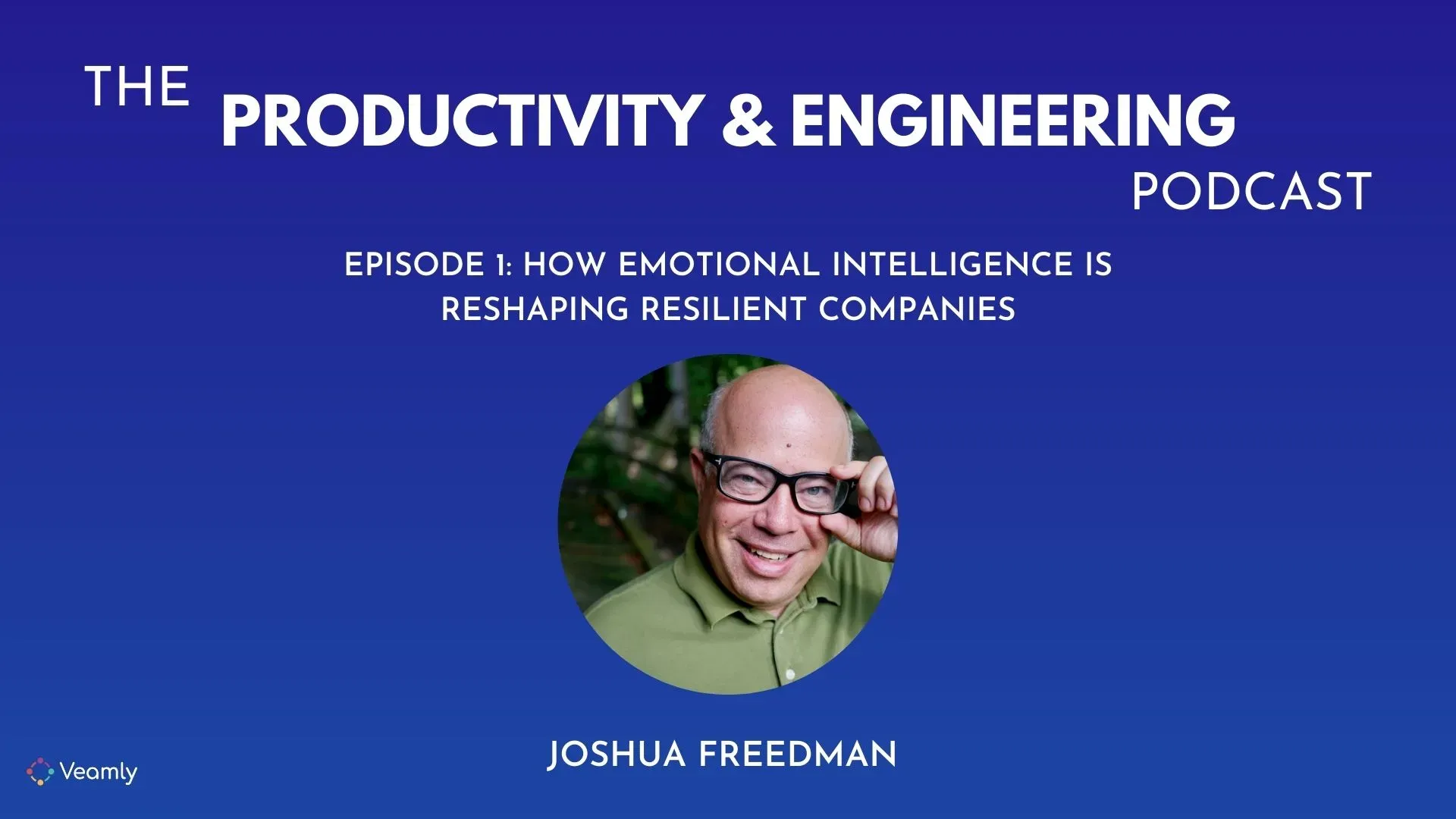
latest
September 7, 2021Emotional Intelligence fuels the future of work
Joshua Freedman is the founder and CEO of Six Seconds. He is a specialist in emotional intelligence and is the co-author of five books.
Joshua's interest in emotional intelligence was born when he started teaching in a school. In this school, emotional development was as important as academic development. That led him to start an organization that would help people learn and understand more about emotional intelligence. He then started to learn about how to apply these concepts in different settings. He started to teach and coach people and companies about emotional intelligence.
One lesson that Joshua learned early in his career is that connections are very important. This is why, he has created the emotional intelligence network. This network allows people from all around the world to create emotional connections. People can support each other and work together. And he has done that way before meetings on Zoom became popular.
Joshua Freedman’s definition of emotional intelligence is “ being smarter with feelings. Our feelings are a source of information and energy, and we can engage with those feelings to be more effective”. In other words, emotional intelligence is acquiring emotional data from within ourselves and using it to solve problems. We face those problems in our everyday life, whether it is at work or at home. The main problem is usually having a diverse group of people feel connected. People can feel connected around the mission they are trying to do together. If we can be smarter with our feelings, we will be able to accomplish this better.
For engineers who are trying to develop their emotional intelligence, the first question is "does it matter" ? Does it matter to develop more skills that will enable you to better connect with yourself and with others ? It is important to realize that our feelings changes the way we do things. So to make better decisions, we need to understand what we feel.
There is a strong correlation between managers who have emotional intelligence skills and employee engagement and retention. That is because people carry a lot of stress and burdens. If managers are not able to create a healthy trusting culture in their company, employees will end up feeling lonely and depressed. These employees will leave the company. But companies need to teach their employees about emotional intelligence. Because they are the ones collaborating and they are creating the culture in the company.
Managers who have emotional intelligence skills also have better communication skills. One of the biggest problems that the world faces today is communication. This problem is mostly due to assumptions and expectations. We often confuse communication with messaging and it is not the same. Communication is relational and not transactional. In today’s hybrid world, we need to find the right balance between messaging and communicating.
To communicate effectively, people need to have a connection. In the hybrid world, connections are getting lost. People are not meeting face-to-face, when they attend meetings they are usually on mute. Companies have to work hard to maintain the connections between employees. When talking about emotional intelligence, companies need to make sure that there is something that they are doing on a day-to-day basis to build trust between employees.
When we are disconnected from ourselves, we become more concerned about others. We react more easily and we are more affected by externalities. This is why emotional intelligence is important. We all need to take time to connect with ourselves and learn about our emotions. That way, we will be better able to solve problems. Yet, let's not forget that connecting with ourselves and our emotions is a learning process. This process takes time and is continuous.
Listen to the full episode with our CEO Emna Ghariani on your favorite podcast platform.
Thank you for the registration
You are now subscribed to our newsletter